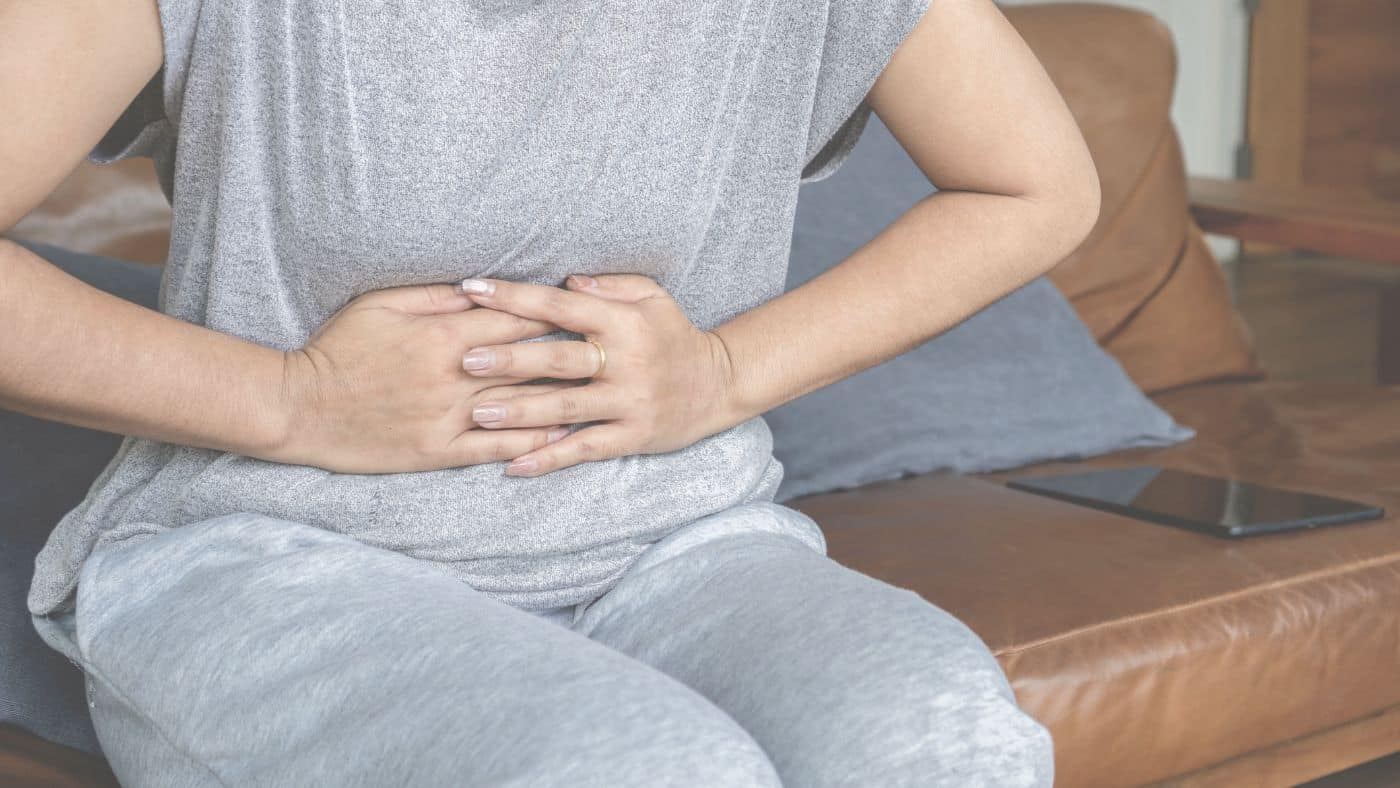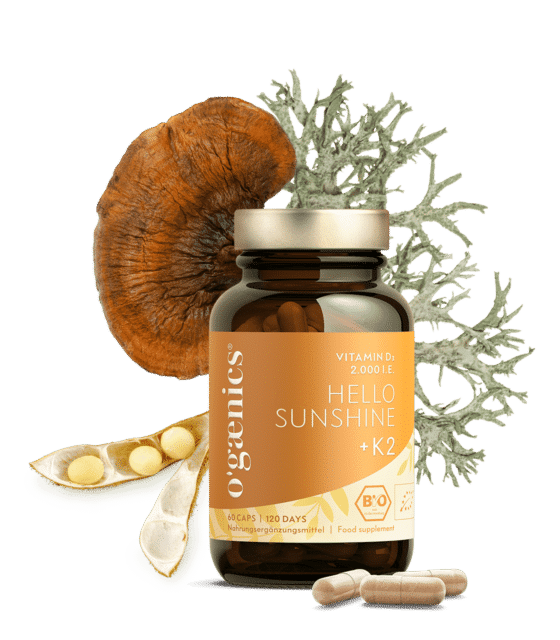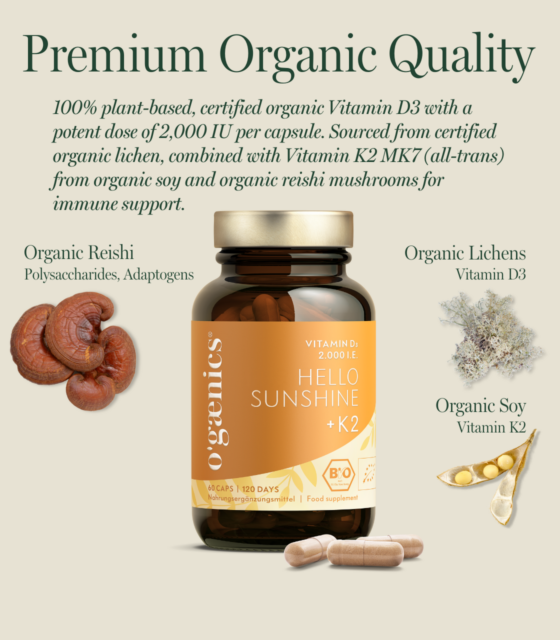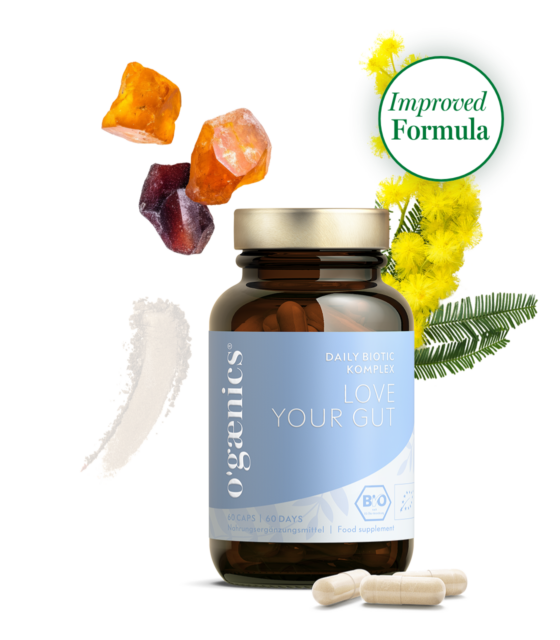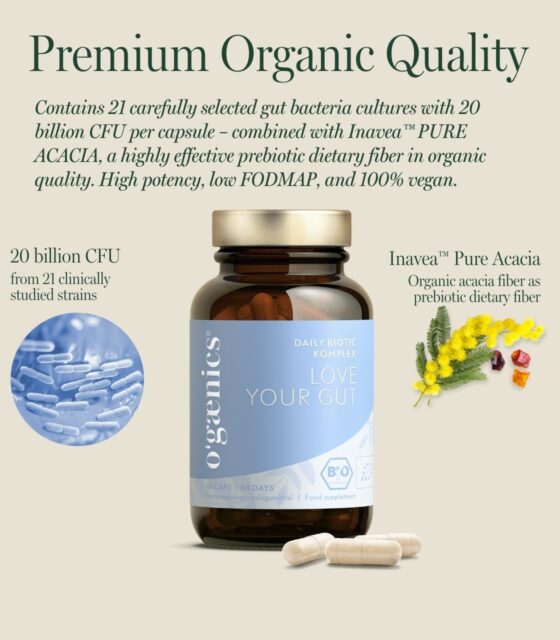Flatulence can be relieved by a certain vitamin – especially in irritable bowel syndrome.
What is irritable bowel syndrome (IBS)?
Irritable bowel syndrome is a functional gastrointestinal disorder that affects around 10-15% of the population worldwide. Typical symptoms are
- Flatulence
- Abdominal pain
- Constipation, diarrhea or an alternation of both
- Feeling of incomplete emptying
- Feeling of fullness
The exact cause is not yet fully understood, but a disturbed gut-brain axis, changes in the intestinal flora (microbiome), immune reactions and psychosocial factors all play a role.
Vitamin D: an underestimated factor in irritable bowel syndrome
Several studies indicate that a significant proportion of IBS patients suffer from a vitamin D deficiency. A meta-analysis of eight studies with a total of 685 patients showed that vitamin D supplementation can significantly improve symptom severity (PMID 35396764). Another systematic review of 1331 irritable bowel syndrome patients confirmed that vitamin D supplementation improves quality of life, although no significant effect on symptom severity was found (PMID 3554647).
Recommendations for vitamin D intake:
- Fatty fish (e.g. salmon, mackerel)
- Eggs and mushrooms
- Sunlight (approx. 15-30 minutes daily)
- Food supplements (e.g. Ogaenics Hello Sunshine Vitamin D3 plus K2)
Probiotics: Support for the gut
Probiotics are live microorganisms that can provide health benefits in sufficient quantities. A systematic review showed that certain strains of probiotics such as Bifidobacterium and Lactobacillus can improve the symptoms of irritable bowel syndrome (PMID 31480656). Another meta-analysis confirmed the effectiveness of probiotics, particularly in relieving abdominal pain and bloating (PMID 37541528).
Recommended probiotic strains:
- Bifidobacterium longum
- Lactobacillus acidophilus
- Bacillus coagulans
Prebiotics: Food for the good gut bacteria – but without irritation, please
Prebiotics are indigestible plant fibers that promote the growth of beneficial intestinal bacteria and contribute to the production of short-chain fatty acids such as butyrate. These have an anti-inflammatory effect and strengthen the intestinal barrier. However, caution is advised for irritable bowel syndrome patients: Many classic prebiotics such as inulin or fructooligosaccharides (FOS) are FODMAPs – fermentable sugars that can easily trigger bloating, abdominal pain or diarrhea in sensitive people.
FODMAPs: friend or foe?
FODMAP stands for fermentable oligo-, di-, monosaccharides and (and) polyols. These sugars occur naturally in many healthy foods – such as onions, garlic or pulses – but can cause severe discomfort in people with irritable bowel syndrome. Many common prebiotics are high-FODMAP foods.
Inavea™ PURE ACACIA: The low-FODMAP prebiotic
A very well-tolerated alternative is Inavea™ PURE ACACIA, an innovative dietary fiber made from organic acacia fibers that, compared to inulin, does not cause typical FODMAP reactions. It is clinically tested, certified low-FODMAP, 100% plant-based, certified organic, has an anti-inflammatory effect and specifically promotes the growth of important bacteria such as Bifidobacterium and Faecalibacterium prausnitzii – without any bloating.
Inavea™ PURE ACACIA is the prebiotic fiber in the Ogaenics Love Your Gut Daily Biotic Complex – ideal for those who need extra gentle support for their gut flora. Studies show: Acacia fibers such as Inavea™ have a particularly mild effect and are well tolerated even by those with sensitive irritable bowel syndrome (PMID 16887651)
Foods with prebiotic properties:
- Root vegetables (e.g. Jerusalem artichokes, parsnips)
- Chicory, artichokes, asparagus
- Bananas
- Onion plants (e.g. leek, garlic)
- Legumes
- Whole grain cereals (e.g. oats, barley)
-
Bestseller
Love Your Gut
Bio Daily Biotic Complex Premium for the gut: 21 bacterial strains plus organic fiberab 39,90 €
Conclusion: Holistic approach for a healthy gut
Irritable bowel syndrome requires an individualized and holistic treatment approach. The combination of a balanced diet, targeted supplementation (e.g. vitamin D, probiotics) and lifestyle changes can help to alleviate symptoms and improve quality of life.
If you want to learn more about gut health, probiotics and the microbiome, read on here:
- How menopause affects your gut health
- Optimize your gut health with synbiotics
- Skin problems? The gut-skin axis is behind it
- The crucial role of the microbiome for gut health
- How the microbiome influences our health and ageing
- Bloated belly while traveling: how to prevent it
- What you should look for in a probiotic
- What can I expect when I take probiotics?
If you want to learn more about vitamin D, we recommend the following in-depth articles:
- Everything you need to know about vitamin D: Vitamin D – a guide for beginners
- 90 percent of all Germans suffer from a Vitamin D deficiency. That’s how you recognize him.
- The loss of up to 100 hairs per day is considered normal. If it’s more in your case, it could indicate a nutrient deficit.




